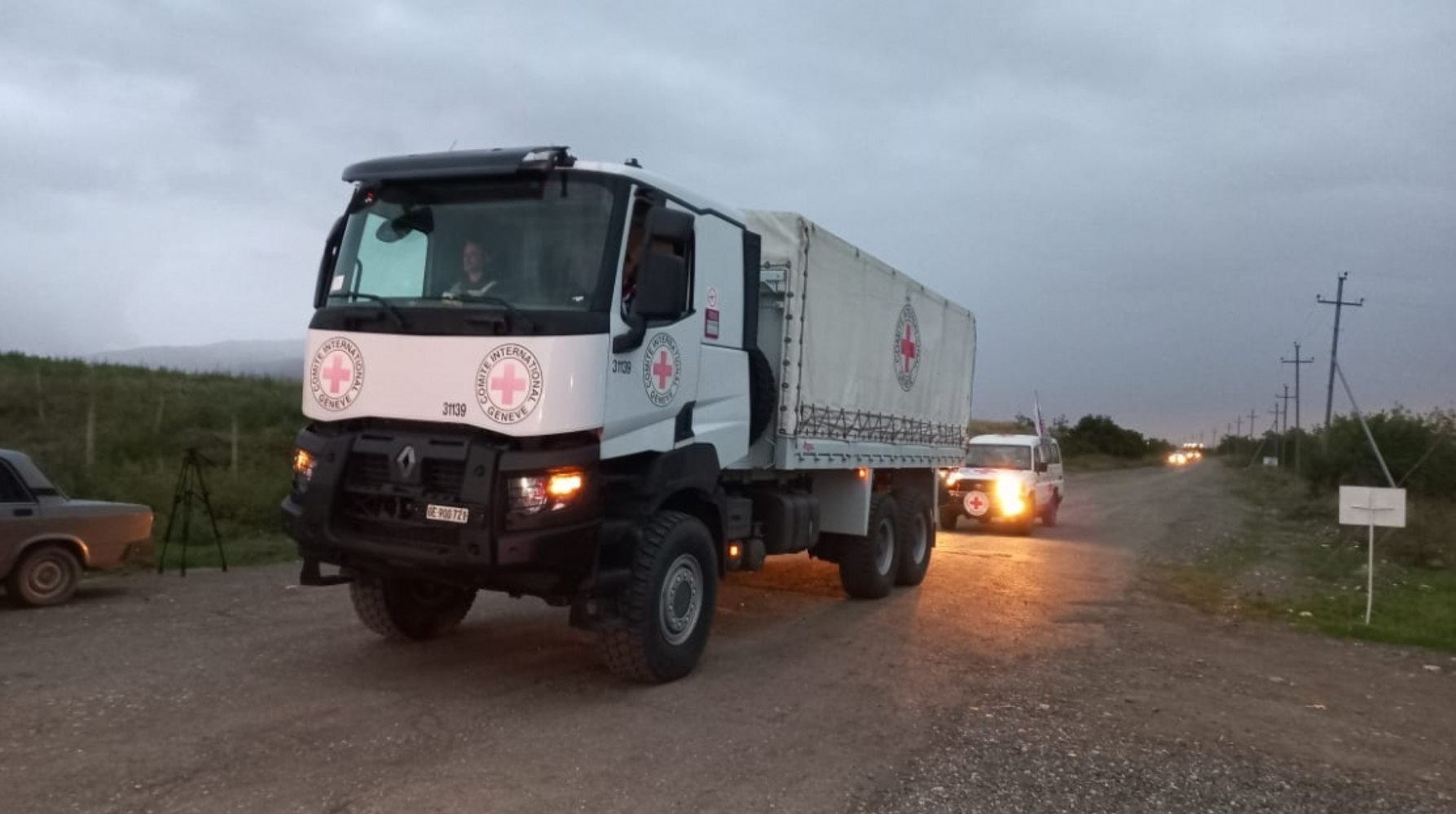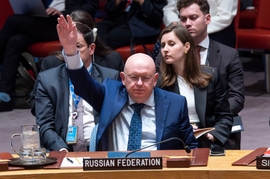The International Committee of the Red Cross (ICRC) shipped goods to the Karabakh region of Azerbaijan simultaneously on the Aghdam-Khankendi and Lachin-Khankendi roads on Monday.
The transportation of the flour products and medicaments began shortly after the ICRC agreed to the terms of delivery with the Azerbaijani government. The goods are destined for the Armenian residents living in the Karabakh region of Azerbaijan.
On Sunday, ICRC appealed to Baku and provided preliminary information on the Armenian side’s agreement to receive cargo through the two roads, according to the Foreign Ministry of Azerbaijan.
“Aghdam-Askaran-Khankandi road is open and functional and must be as such! It is the principled, just, legitimate, and irreversible position of Azerbaijan!” Hikmet Hajiyev, Assistant to the President of Azerbaijan, wrote on X (formerly Twitter) on Monday.
The Aghdam-Khankendi highway was used to transport goods for the second time this month, following the supplies by the Russian Red Cross Society on September 12.
However, 40 tons of flour and flour products supplied by the Azerbaijan Red Crescent Society remains stranded in Aghdam since August 29, after Armenian residents refused its entry into Khankendi.
Representatives of the Society and members of the temporary Russian peacekeeping mission were negotiating the terms to facilitate the shipment of this cargo.
The proposal to use the Aghdam-Khankendi was presented by the Azerbaijani authorities after multiple illegal shipments were discovered on the Lachin road, the route connecting the Karabakh region of Azerbaijan with Armenia.
In July, Azerbaijani border guards found unauthorized goods on ICRC-labelled cars bound for the Karabakh region on the Lachin-Khankendi road. Baku had then warned all involved in the illegal shipment and offered the Aghdam-Khankendi road as an alternative for the supplies to the Karabakh region.
However, Yerevan and Armenians in the Karabakh region of Azerbaijan rejected the proposal, insisting on the use of the Lachin road while simultaneously blocking the Aghdam-Khankendi road. They have been politicizing the issue under “blockade” and “humanitarian crisis” pretexts.
In July, President Ilham Aliyev stated that the so-called "leadership" of Armenians in the Karabakh region had intentionally placed concrete barriers on the Aghdam-Asgaran section of the Aghdam-Khankendi road to cripple the traffic movement.
In August, Hikmet Hajiyev said the latter would open only after traffic resumed on the highway leading from Aghdam to Khankendi. However, in early September, he said there had been a suggestion for the simultaneous opening of the roads and Azerbaijan agreed.
Approximately 25,000 Armenians reside in certain parts of the Karabakh region, monitored by a temporary Russian peacekeeping mission. Following the war, the Azerbaijani government expressed its willingness to reintegrate these individuals into Azerbaijani society in accordance with the Constitution and laws of Azerbaijan.
On March 1, Azerbaijani officials met with representatives of Armenians residing in the Karabakh region to initiate discussions on their reintegration into Azerbaijani society. In late March, Azerbaijani authorities extended an invitation to the representatives of Karabakh Armenians to visit Baku for a second meeting.
However, a group of separatists in the Karabakh region and certain political groups in Armenia sought to disrupt the process. They have been advocating for a "status" for the region's Armenian residents and demanding "independence" from Azerbaijan.







 Azerbaijan and Armenia started the process of demarcation of their border on Tuesday, with the installation of the first border markers based on ge...
Azerbaijan and Armenia started the process of demarcation of their border on Tuesday, with the installation of the first border markers based on ge...
 President Aliyev emphasized the critical role of the North-South Transport Corridor in fostering transport cooperation between Azerbaijan and Russi...
President Aliyev emphasized the critical role of the North-South Transport Corridor in fostering transport cooperation between Azerbaijan and Russi...
 Iran and Pakistan have signed eight cooperation documents in various fields, and agreed to strengthen ties to fight terrorism in the region.
Iran and Pakistan have signed eight cooperation documents in various fields, and agreed to strengthen ties to fight terrorism in the region.
 As the conflict between Ukraine and Russia escalates, the strategic importance of Kharkiv, Ukraine's second-largest city, has come sharply into focus.
As the conflict between Ukraine and Russia escalates, the strategic importance of Kharkiv, Ukraine's second-largest city, has come sharply into focus.
 Iranian President Ebrahim Raisi expressed Tehran’s readiness to participate in significant development projects in Sri Lanka during the inauguratio...
Iranian President Ebrahim Raisi expressed Tehran’s readiness to participate in significant development projects in Sri Lanka during the inauguratio...



